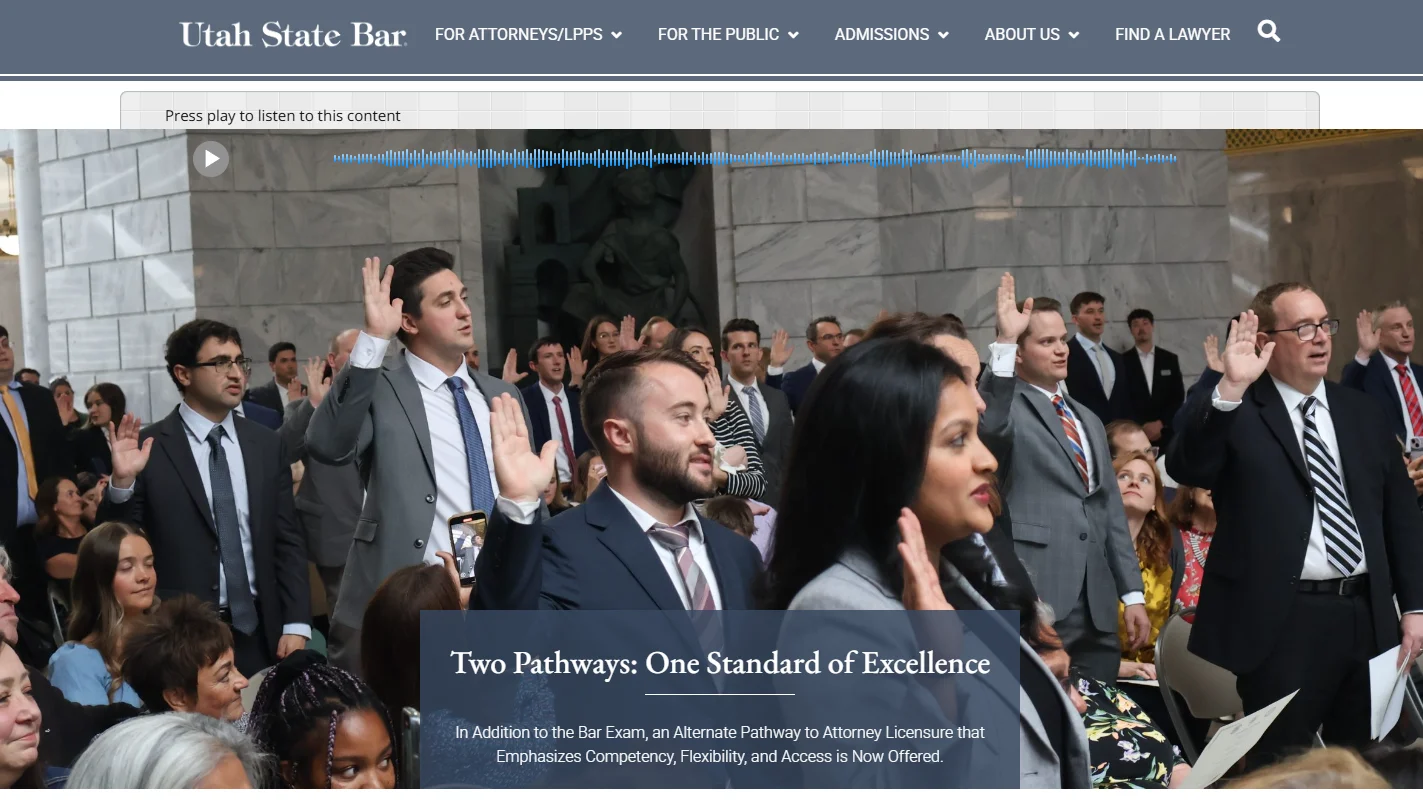
Utah has joined the growing movement to rethink attorney licensure in the United States, as approved by the Utah Supreme Court. Rule 14-703Aestablishing an alternative path to becoming a licensed attorney that emphasizes practical legal training rather than traditional standardized testing.
THE new routeapproved on September 24 and which will be open for applications beginning January 1, 2026, represents a significant change in how the state assesses readiness to practice law. Rather than requiring passing the bar exam, applicants can demonstrate their skills through a combination of supervised practical experience, specialized coursework, and a written performance assessment.
The competency-based model is structured around three main components:
- Practical training: 240 hours of supervised legal practice under the guidance of a qualified attorney, giving graduates direct exposure to actual client work and legal procedures.
- Academic Foundation: Completion of required skills coursework during law school, ensuring that candidates have learned essential skills in an educational setting.
- Performance evaluation: A written examination administered by the State Bar of Utah that assesses the practical application of legal knowledge.
According to the Utah State Bar, this combination actually beats many traditional bar preparation deadlines in terms of time investment, while providing what it describes as “a deeper engagement in real legal work.”
Removes barriers to admission
One of the main selling points of this sector is its ability to reduce financial barriers to entry into the profession. Associate Chief Justice John A. Pearce, who chaired the bar admission task force that developed the alternative, said the option was not intended to make it easier to enter the legal profession.
“This option gives graduates a financially viable way to begin practicing law without months of unpaid study and without risking thousands of dollars in preparation costs,” he said. “The Utah Supreme Court is confident that this path will produce attorneys better prepared to immediately practice law.”
This approach reflects emerging research on assessing legal skills, the law society said in a statement. He cites empirical studies suggesting that competency-based assessments may be more effective than standardized tests alone in predicting future success in legal practice.
Utah State Bar Executive Director Elizabeth Wright framed the change as a recognition that “one size does not fit all,” noting that the option serves “those who excel outside of a traditional exam” by equipping them with practical skills from the start.
The alternative path will work alongside existing options, without replacing them. Utah will continue to offer the Uniform Bar Examination (UBE) and plans to adopt the NextGen Bar Exam when it launches in July 2028. This multiple-track approach allows applicants to choose the path that best fits their learning style, financial situation, and career goals.
National context
Utah’s decision positions the state in a broader national debate over licensure reform. Several jurisdictions are evaluating similar changes, with some already implementing practice-based pathways.
Based on my quick research this morning, four states already allow some form of competency-based bar admission, either in pilot or permanent form: New Hampshire, Oregon, Washington, and Wisconsin.
Five other states have pilot projects underway or in development: Arizona, California, Minnesota, Nevada and South Dakota.
In Utah, the public comment period on the proposed change in late 2024 attracted 103 submissions, with many commenters welcoming the focus on real-world legal service and its potential to improve both public protection and access to justice.
The 15-member Bar Admissions Working Group that developed the pathway included judges, practitioners and academics, reflecting a cross-section of Utah’s legal community.
Their work recognizes what many in legal innovation have long argued: that the skills required for effective legal practice cannot be entirely acquired through a high-stakes written exam.





